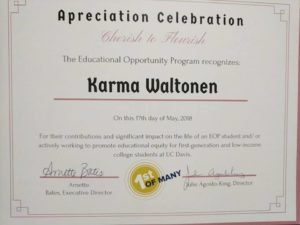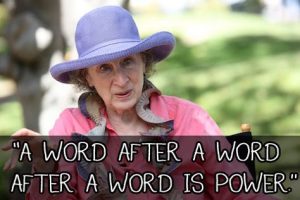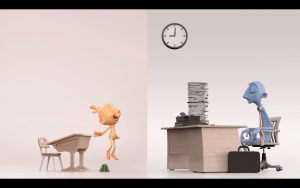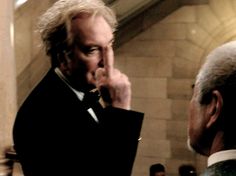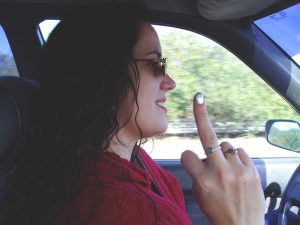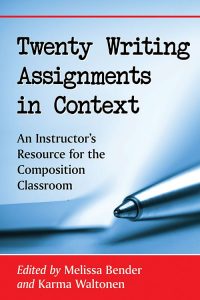I’m fairly sure neither the students nor I wanted to be in our class.
About 15 years ago, I worked at a for-profit technical college, the type so often in the news today.
I had lived in California for about nine months—I had moved out to go to grad school at The University of California, Davis. In return for my teaching, they paid my tuition and gave a small nine month stipend. It was not quite enough to live on, especially as I was a single mother.
“How do people support themselves over the summer?” I asked my grad advisor—it’s not like the rent could go unpaid.
“Hmmm. I actually don’t know that. . . . I think most of them have spouses.”
And so I started teaching summer classes at MTI in Sacramento.
The students were varied—ranging from their early twenties to their fifties. Most were parents. Almost all worked full-time jobs. We would meet three hours a week for an evening. The women primarily wanted to be paralegals and understood the value of the writing class I taught. The men primarily wanted to get a promotion or a move into another business or tech field—they saw the class as another hurdle—a barrier—to what they wanted to do.
When I tried to talk to one man about how to improve his writing, he simply said, “Just give me a C.”
Still, the majority of the students and I got along. Maybe since I had technically been a returning student and was also working my way through higher ed, we understood each other.
The “college” and I are a different story. Perhaps the best way to explain is to talk about appearance.
I had to go out and buy a couple of suits to work there. I managed at UCD with only one—my conference suit—because we didn’t have a “dress code” like MTI did.
We were modeling being professional, we were told.
The students also had to abide by rules, including one that to even be a student, one couldn’t have visible tattoos, as my students informed me.
It’s harder for people with tattoos to get jobs. MTI’s only real marketing point was their alumni job rate (we know that most schools count an alumni having a job if they’re employed at all—even if they have the same job they had before attending). Thus, students who might be hard to place just didn’t get in.
The strangest enforcement of dress codes, though, came when I had emergency surgery.
Part of the reason I came to UC Davis was because they offered healthcare to their graduate students. With pre-existing conditions, I couldn’t get healthcare on my own, not even when I worked for Florida State University prior to moving.
I’d been struggling with immense back pain. After almost a year of trying to figure out what was wrong, I got an MRI, showing a massive sacral disc herniation. (I was 25.)
I should have been in recovery for six weeks, but that’s not how bills get paid, so I was back at work in six days.
The night I came back, the air conditioner wasn’t really working; it was over 100. Halfway through our three hours, I asked the students if they would mind if I slipped off my heels—I wasn’t supposed to wear them with a bad back anyway.
They didn’t mind.
I got an email the next day, saying that someone had looked into my classroom via the 6X2” window in the door.
It said that if I couldn’t dress appropriately for work, I shouldn’t come to work.
Now, this was a “college” that robo called all of us on 9/11/2001 to say that we HAD to have classes as usual—that there would be consequences for deciding not to teach or be taught.
I got on the phone with my supervisor, explaining the situation. She held her ground. It would have been better, yes, to cancel class than to teach barefoot or in sandals.
She suggested that if I couldn’t keep my shoes off, perhaps I should sit behind the desk.
“For three hours?”
“Yes,” she replied, even after I explained to her that trying to keep people’s attention in a hot summer room for three hours is hard enough without losing the energy one gains by standing and walking and using the board.
It would have been disrespectful to my students, I thought, to bore them that way.
My students were horrified when I told them the story in the next session.
My wannabe paralegals wanted to sue, as I was clearly, if temporarily, disabled. I told them it would be more fun to sue on ethnic discrimination. I was raised white trash in the South and thus shouldn’t be expected to wear shoes at all.
Of course, we didn’t sue. We did gripe and let off steam, though.
Why should I be treated differently—and why should they—when my writing class at MTI is supposed to be the same as my writing class at UCD?
I had already published at conferences and had few years of teaching behind me at that point.
I knew how to do my job—with or without shoes.
But that wasn’t the point. MTI didn’t really care about what was happening in the classroom—they only cared what it looked like.
And so we had to cover our tattoos and and put on our suits to dress up MTI.
